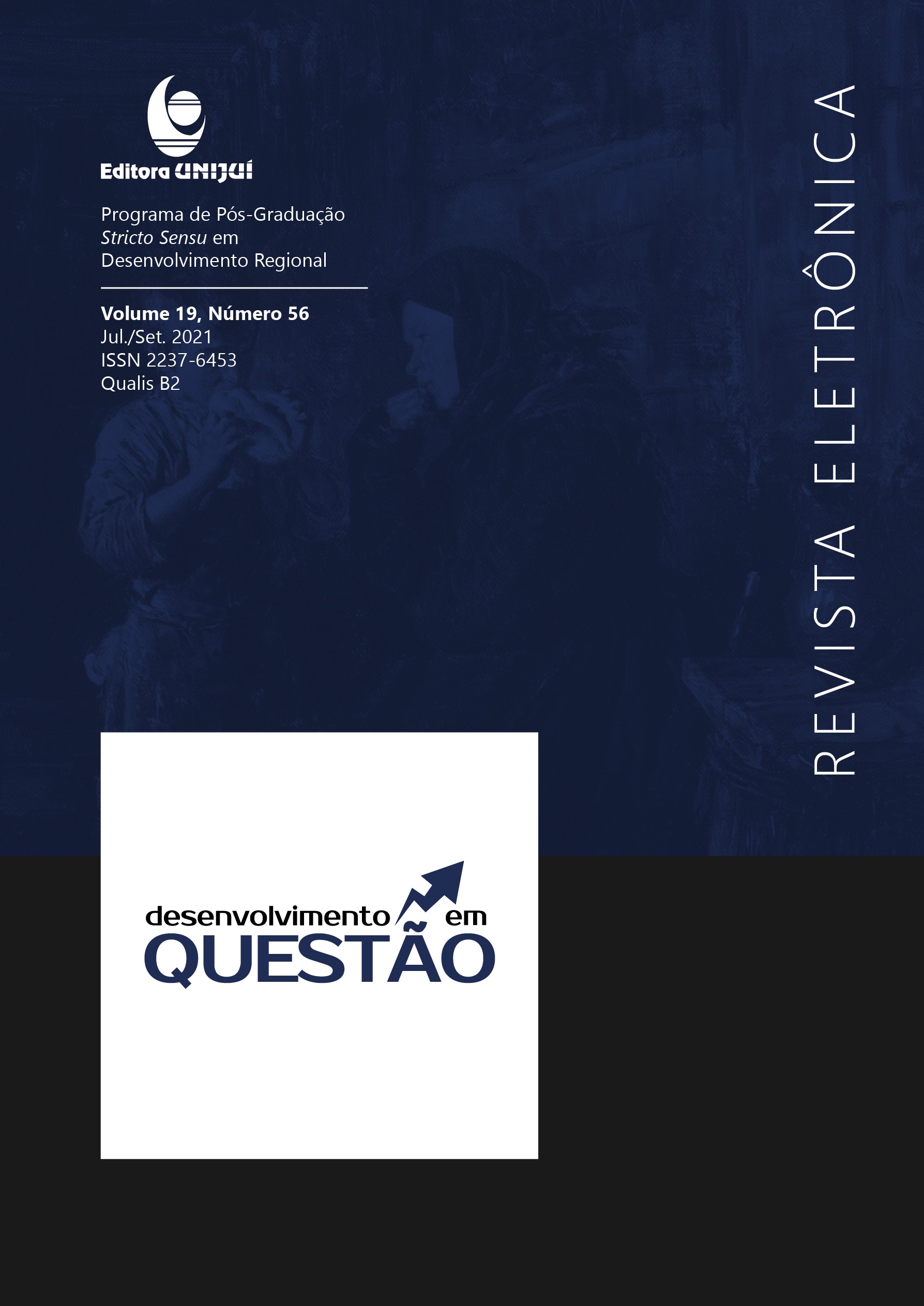Collection And Disposal of Waste in Small Towns
COLETA E DESTINAÇÃO DE RESÍDUOS EM MUNICÍPIOS DE PEQUENO PORTE
DOI:
https://doi.org/10.21527/2237-6453.2021.56.10266Palavras-chave:
Sustentabilidade, Gestão de Resíduos Sólidos, Gestão IntegradaResumo
Este trabalho busca analisar o perfil, volume produzido e destinação de resíduos sólidos em municípios de pequeno porte no oeste catarinense. Para operacionalizar o estudo foram coletados dados em municípios da Mesorregião Oeste de Santa Catarina. Foram aplicados roteiros de questionários para gestores públicos, Presidentes das Associações de Catadores, pontos de coleta de resíduos e catadores individuais. Para análise dos resultados foi considerado pequeno município aqueles com menos de 25.000 habitantes. Os resultados mostram que: i) a densidade populacional explica mais de 80% do orçamento destinado à coleta de Resíduos Sólidos Domiciliares e coleta Seletiva; ii) o gasto médio com serviços de coleta e destinação é de R$ 44,22 per capita; iii) a reciclagem propicia uma renda .bruta mensal de R$ 2.286,98 por catador; iv) que 61% dos municípios possuem Plano de Gestão de Resíduos, mas os dados não demonstram a efetividade dos mesmos; v) a principal dificuldade apontada pelas prefeituras se refere conscientização da população. Isto permite concluir que a gestão integrada dos resíduos sólidos requer mais que políticas públicas. Este estudo contribui para o entendimento da área ao reforçar que a Gestão de Resíduos Sólidos deve (e pode) ser tratada de forma integrada, considerando todos aspectos da sustentabilidade.
Downloads
Publicado
Como Citar
Edição
Seção
Licença
Ao publicar na Revista Desenvolvimento em Questão, os autores concordam com os seguintes termos:
Os trabalhos seguem a licença Creative Commons Atribuição 4.0 Internacional (CC BY 4.0), que permite:
Compartilhar — copiar e redistribuir o material em qualquer meio ou formato;
Adaptar — remixar, transformar e criar a partir do material para qualquer fim, inclusive comercial.
Essas permissões são irrevogáveis, desde que respeitados os seguintes termos:
Atribuição — Atribuição — os autores devem ser devidamente creditados, com link para a licença e indicação de eventuais alterações realizadas.
Sem restrições adicionais — não podem ser aplicadas condições legais ou tecnológicas que restrinjam o uso permitido pela licença.
Avisos:
A licença não se aplica a elementos em domínio público ou cobertos por exceções legais.
A licença não garante todos os direitos necessários para usos específicos (ex.: direitos de imagem, privacidade ou morais).
A revista não se responsabiliza pelas opiniões expressas nos artigos, que são de exclusiva responsabilidade dos autores. O Editor, com o apoio do Comitê Editorial, reserva-se o direito de sugerir ou solicitar modificações quando necessário.
Somente serão aceitos artigos científicos originais, com resultados de pesquisas de interesse que não tenham sido publicados nem submetidos simultaneamente a outro periódico com o mesmo objetivo.
A menção a marcas comerciais ou produtos específicos destina-se apenas à identificação, sem qualquer vínculo promocional por parte dos autores ou da revista.
Contrato de Licença (para artigos publicados a partir de 2025): Os autores mantêm os direitos autorais sobre seu artigo, e concedem a Revista Desenvolvimento em Questão o direito de primeira publicação.











